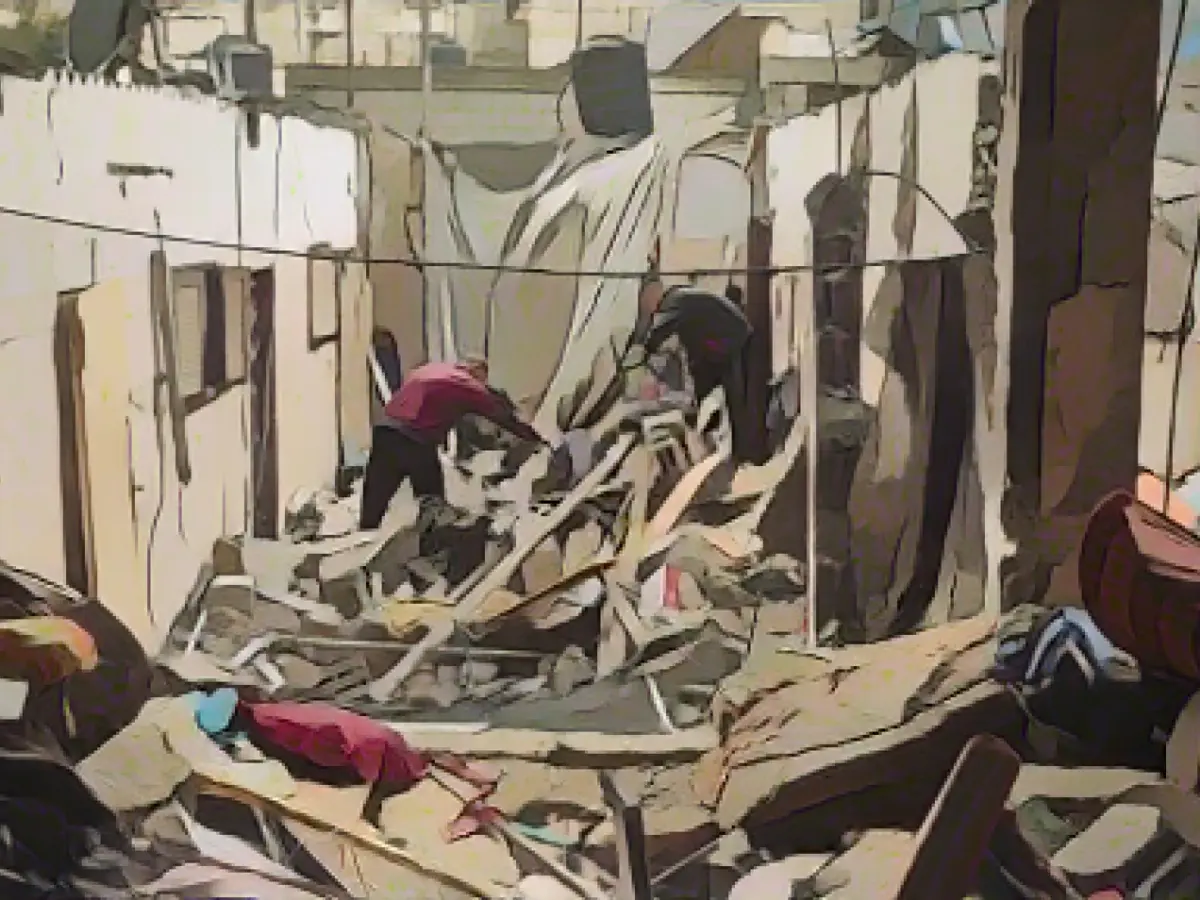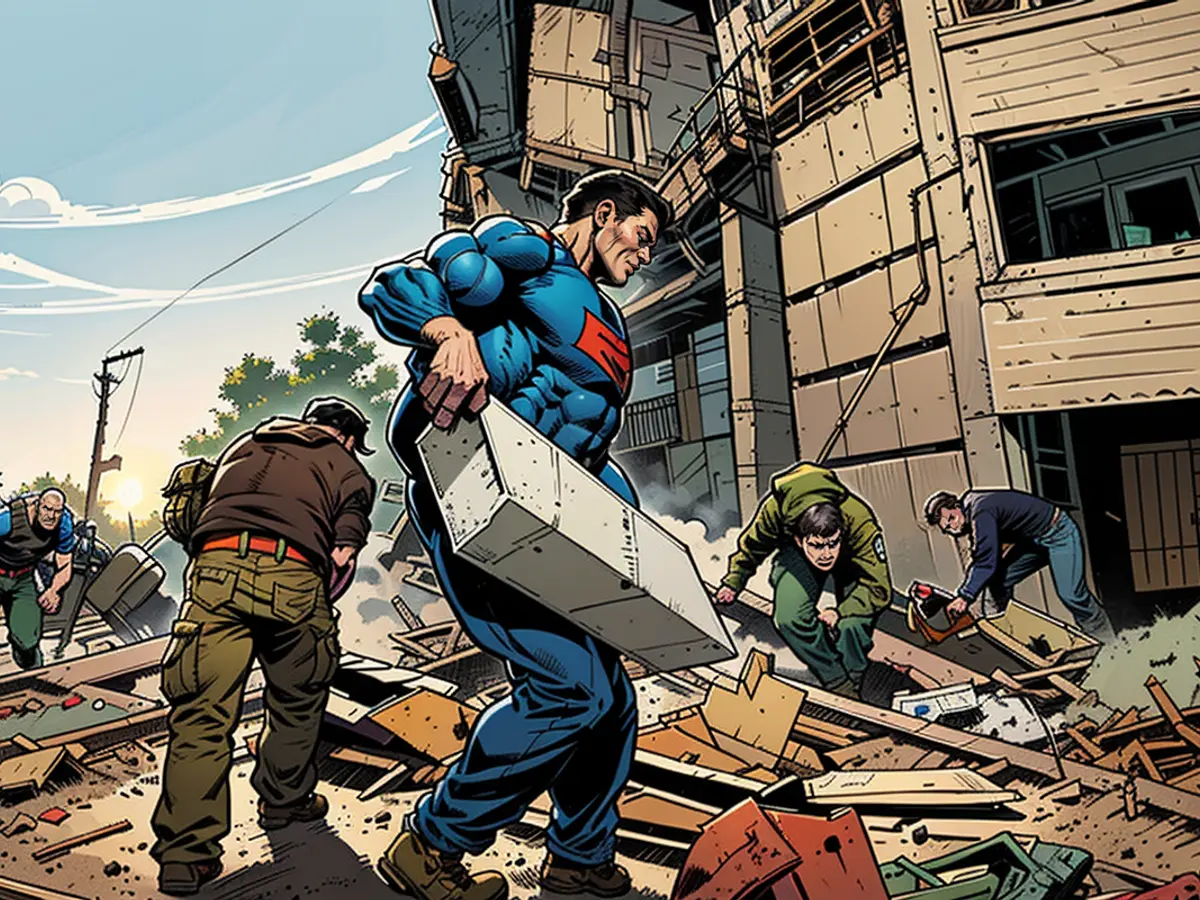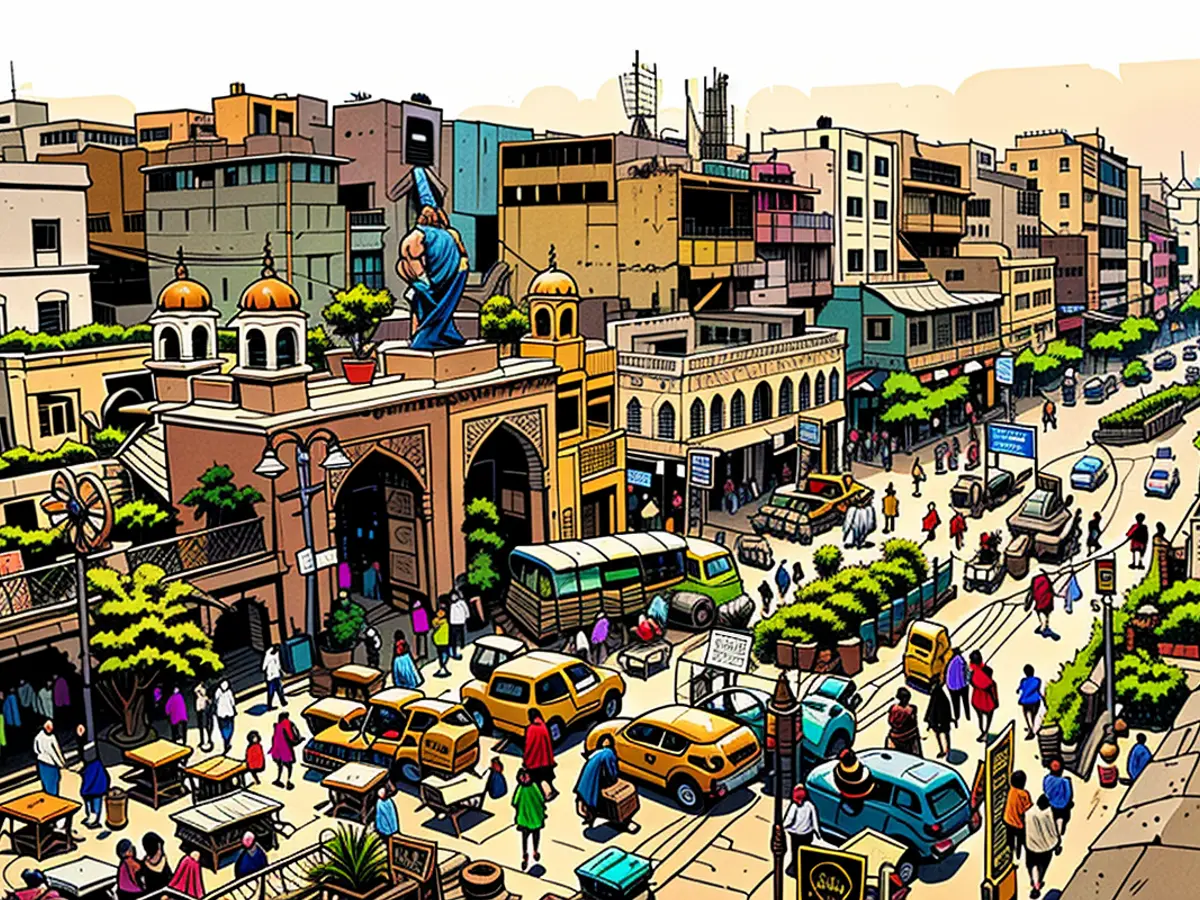Middle East - Economic activity in Gaza has almost come to a standstill
The war in Gaza is having a severe impact on the economy in the Palestinian territories. According to a World Bank report, gross domestic product (GDP) there will fall by 3.7 percentage points this year.
Before the war, the Washington-based World Bank forecast real GDP growth of 3.2 percent for 2023. Economic activity in the Gaza Strip has come to an almost complete standstill since the outbreak of the war.
According to the report, 85 percent of people in the coastal region are now unemployed. Before the outbreak of the war, around half of the inhabitants there were unemployed. Most of the 56,000 official businesses in the Gaza Strip have also ceased operations as a result of the fighting.
"The loss of life, the speed and extent of damage to property and the reduction in income streams in the Palestinian territories are unprecedented," it continued. The Gaza Strip is in a "deep recession".
Effects on the West Bank too
According to the report, the war is also having a considerable impact on the economy in the West Bank. One reason for this is that Israel is no longer allowing 200,000 Palestinians to work in Israel and Israeli settlements in the West Bank.
A total of 67,000 people are currently unable to reach their workplace due to movement restrictions and the increase in settler violence in the West Bank. In addition, public salaries have been temporarily cut and tourism in the West Bank has declined significantly.
Consumption, which had been a driver of the Palestinian economic upswing after the coronavirus pandemic, is collapsing, it was added. However, the Israeli occupation of the West Bank had already slowed down growth there before the Gaza war, the report continued. The Palestinian Authority, which governs the West Bank, had also failed to implement the necessary reforms adequately, thereby also damaging the economy. The war is now exacerbating the existing problems.
According to the World Bank, the bottom line is that the Palestinians are becoming poorer and the Palestinian territories remain dependent on international aid.
The Gaza war was triggered by the worst massacre in Israel's history, carried out by Palestinian terrorists in Israel on October 7. They murdered around 1200 people. According to the Hamas health authority, more than 18,600 people were killed and more than 50,000 injured in Israel's counter-offensive.
Read also:
- Year of climate records: extreme is the new normal
- Precautionary arrests show Islamist terror threat
- UN vote urges Israel to ceasefire
- SPD rules out budget resolution before the end of the year
- The conflict between Israel and Palestinians in Gaza is causing a significant economic recession in the Palestinian territories, as reported by the World Bank.
- GDP in the Palestinian territories is expected to decrease by 3.7 percentage points this year due to the ongoing war in Gaza.
- Before the war, the World Bank forecasted a 3.2% real GDP growth for 2023 in the Palestinian territories, but that has changed drastically.
- The Gaza Strip, a major part of the Palestinian territories, has almost entirely halted economic activity due to the ongoing war.
- The Hamas-controlled Gaza Strip is currently experiencing a severe recession, with an estimated 85% of its population unemployed.
- The war has also impacted the West Bank's economy, with Israel restricting 200,000 Palestinians from working in Israel and its settlements.
- As a result of the conflict, approximately 67,000 Palestinians are unable to reach their workplaces due to movement restrictions and increased settler violence in the West Bank.
- The International community, including the UN, has urged for a ceasefire to prevent further damage to the Palestinian territories, as they remain heavily dependent on international aid.
Source: www.stern.de







